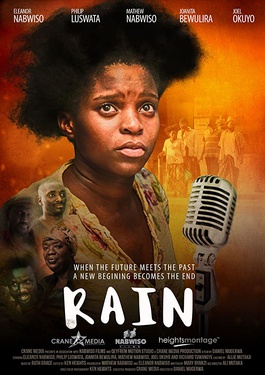Related Research Articles
The BurundiNational Defence Force is the state military organisation responsible for the defence of Burundi.

Pierre Nkurunziza was a Burundian politician who served as the ninth president of Burundi for almost 15 years from August 2005 until his death in June 2020.

Islam is a minority religion in Burundi where approximately 90 percent of the national population are followers of Christianity. Between 2–5 percent of the population identifies as Muslim, according to a 2010 estimate by the United States Department of State. The same year, the Pew Research Centre estimated that there were 230,000 Muslims in Burundi, equivalent to 2.8 percent of Burundi's 8.4 million inhabitants.

The principle law enforcement agency in Burundi is the National Police of Burundi. The police falls within the jurisdiction of the Ministry of Public Security. It is separate from the National Intelligence Service (SNR), the state intelligence agency.

Burundi traditionally had two official languages: Kirundi and French. English became the third official language of the country in 2014. Of these, only Kirundi is spoken by the vast majority of the population. It is recognised as the national language by the Burundian constitution of 2005.

Burundi, officially the Republic of Burundi, is a landlocked country in the Great Rift Valley at the junction between the African Great Lakes region and East Africa. It is bordered by Rwanda to the north, Tanzania to the east and southeast, and the Democratic Republic of the Congo to the west; Lake Tanganyika lies along its southwestern border. The capital cities are Gitega and Bujumbura, the latter being the country's largest city.

In 2022, Freedom House rated Burundi’s human rights at 14 out 100.
Hasaki Ya Suda is a 2011 film.
Prostitution in Burundi is illegal but is commonplace and on the rise. Prostitution is prevalent in all areas of the country, and especially in the largest city, Bujumbura, and prior to the security crisis in 2015, the tourist areas around Lake Tanganyika. UNAIDS estimate there are 51,000 prostitutes in Burundi. Many women have turned to prostitution due to poverty.

Burundian nationality law is regulated by the Constitution of Burundi, as amended; the Nationality Code of Burundi, and its revisions; and various international agreements to which the country is a signatory. These laws determine who is, or is eligible to be, a national of Burundi. The legal means to acquire nationality, formal legal membership in a nation, differ from the domestic relationship of rights and obligations between a national and the nation, known as citizenship. Burundian nationality is typically obtained under the principle of jus sanguinis, i.e. by birth in Burundi or abroad to parents with Burundian nationality. It can be granted to persons with an affiliation to the country, or to a permanent resident who has lived in the country for a given period of time through naturalization.

Burundi competed at the 2016 Summer Olympics in Rio de Janeiro, Brazil, from 5 to 21 August 2016. This was the nation's sixth consecutive appearance at the Summer Olympics.

On 13 May 2015, army general Godefroid Niyombare said that he was "dismissing President Pierre Nkurunziza" following the 2015 Burundian unrest. However, the presidency tweeted that the "situation is under control" and there is "no coup".

Jean-Pierre "Kidum" Nimbona is a Burundian musician. He was named Best Male Artist of East Africa at the 2012 Kora Awards. He was named as an Ambassador for Peace, a position that helps to foster hope and reconciliation in East Africa.

The Route is a Ugandan film directed by Jayant Maru, based on a screenplay he wrote. It is about human trafficking in Uganda.
Burundi–Tanzania relations are bilateral relations between Burundi and Tanzania. Burundi is a strategic partner of Tanzania in many areas, particularly trade. Since Burundi is a landlocked country, almost 80% of its goods are moved through by road to Dar es Salaam Port. Tanzania has also been a strategic partner in mediating the political tensions in the country. Both countries are members of the African Union.

Burundi–India relations are the international relations that exist between Burundi and India. Apart from bilateral relations, India also engages with Burundi through the African Union and the Regional Economic Communities (RECs).
Léonce Ngabo is a Burundian film director. His 1992 film Gito l'ingrat was the first Burundian feature film.

Rain is a Ugandan 2016 drama film directed by Daniel Mugerwa, written by Mary Nyanzi and produced by Eleanor and Mathew Nabwiso. The film was released on 20 August 2016 in Kampala and stars Eleanor Nabwiso, Mathew Nabwiso, Joel Okuyo Atiku, Phillip Luswata and Joanita Bewulira. The film received numerous awards in Uganda and abroad and won Best Women’s Rights Film award at the London Eye International Festival, organised and run by London Film Network Ltd at the Terbanacle Theater in London, Best Actress in East African and Best First time Director from FESTICAB a film festival in Burundi, Best Film in Africa and Middle East award from NUREN film festival in China and Best Screenplay at Uganda Film Festival Awards in Uganda.
Eddy Munyaneza is a Burundian filmmaker. Considered to be one of Burundi's most promising filmmakers, Munyaneza is notable as the director of the critically acclaimed documentaries Le troisième vide and Lendemains incertains. Apart from filmmaking, he is also a writer, producer and editor.
Vénuste Maronko is a Burundian film director, actor, and singer.
References
- ↑ Al Chahed, Nadia (2016-06-27). "Le cinéma burundais peine à plaider pour la paix". www.aa.com.tr. Retrieved 2023-12-07.
- 1 2 From AfryKamera to FESTICAB, Screen Africa, June 2, 2015.